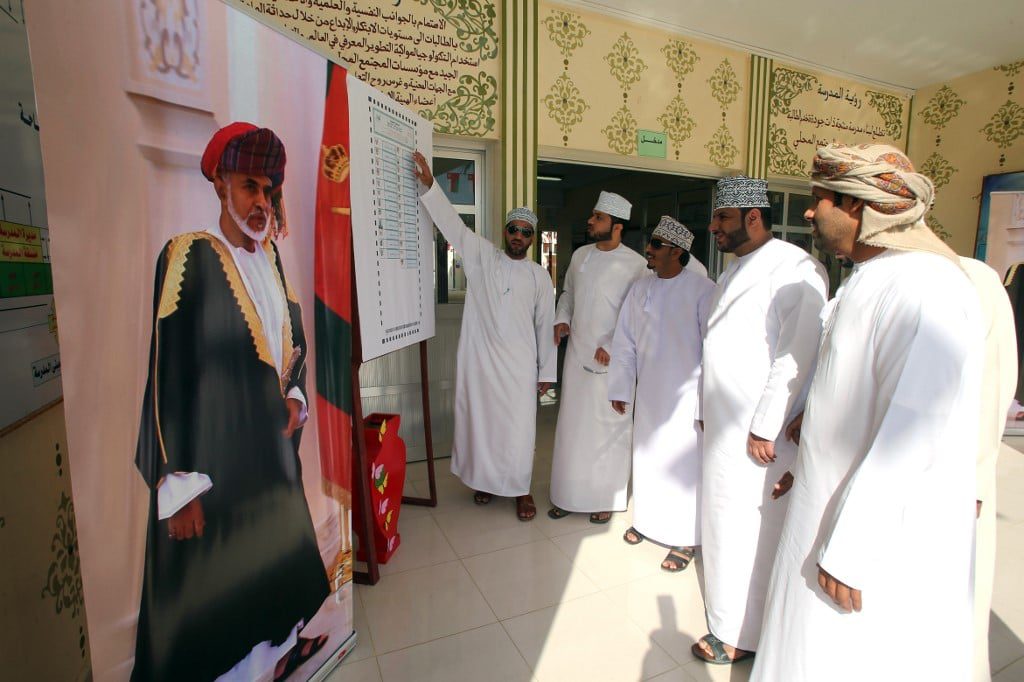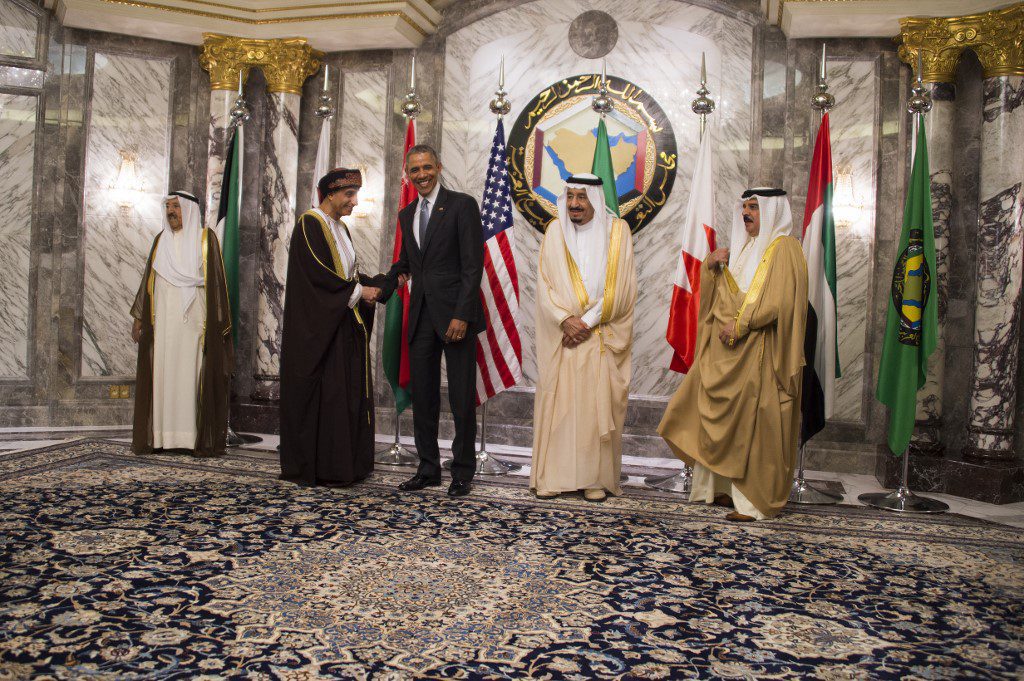
Introduction
Inspired by developments in Tunisia and Egypt, Oman was the centre of a modest version of the Arab Spring. From late February 2011 onwards, Omani citizens gathered at several roundabouts in the area of Sohar to protest against rising unemployment figures, cost of living and corruption among government officials, and to demand better working conditions and salaries. On a political level the demonstrators called for greater civil and political rights, greater power for the advisory Shura Council, judiciary independence and guaranteed freedom of expression.
Generally the demonstrations, organized by young Omanis with the help of social media, were non-violent. However, in Sohar, protestors set fire to several government buildings and clashed with security forces, who used tear gas, rubber bullets and batons to disperse them. One protestor was killed, dozens were arrested. This violent clash sparked demonstrations and sit-ins in other cities and towns, such as Salalah in the far south and Sur in the east, where protesters gathered around squares in support of their counterparts in Sohar. Again, the unrest was suppressed.
Despite limited social and political reforms announced by Sultan Qaboos in 2011, protests re-emerged in the spring of 2012 over unemployment and the slow pace of reforms. A wave of arrests targeted human rights activists, bloggers and journalists who had criticized the government’s failure to implement reforms and protect human rights. In 2012, a total of 35 activists were sentenced to prison for protesting and expressing their views on social media, according to Human Rights Watch.

Rising unemployment among young Omanis has led to resentment and frustration, particularly in the port city ofSohar. The newly constructed deep sea port facility did not bring the new employment opportunities that people hoped for. Job vacancies are too high-tech for unskilled locals and are filled by expatriates. A decree from the Sultan increasing the minimum wage prompted some local companies to fire Omani employees, replacing them with cheaper expatriates. This move enraged many young Omanis. The Omanization rate in the private sector fell from 18.8 percent in 2005 to 12.2 percent in August 2012, while employment in the public sector often remained the preferred option for Omani nationals. In 2012, employment of nationals in the private sector declined further due to Omanis leaving their jobs after the government announced to create thousands more in the public sector.
Top officials have been accused of corruption, favouring their personal business interests over the nation’s interests. These accusations have been reinforced by the centralized and unaccountable decision making in government and officials’ personal involvement in business.
Over the past decades, Oman has made significant progress in the fields of health care, education and income (see
the UN Human Development Report 2010). Nonetheless, social justice and democracy remain stinted. Severe restrictions on political activities, participation in public affairs and freedom of expression and assembly remain in force. Political parties, NGOs and student associations are forbidden and criticism of the regime is absent in the media. According to Human Rights Watch, Omani authorities have been trying to suffocate the pro-reform movement by imprisoning activists with laws that violate international standards. Under the Press and Publications law, amended in October 2011, publications and expressions deemed to undermine national security would be punishable.
By initiating their own Arab Spring, Omanis have broken the silence, standing up in support of substantial political reforms. However, the loosely organized opposition has not made it its objective to oust the longtime head of state, Sultan Qaboos.
Reforms
انتخاب لوحة عمانية ، 2016 (Photo by MOHAMMED MAHJOUB / AFP)In March 2011, the Sultan took several steps in response to the protests, replacing six ministers who had been accused of corruption. The minimum wage and unemployment benefits were increased substantially. In the following two years, the government provided its nationals tens of thousands of jobs in the already saturated public sector. Doubts have been raised about the effects of these steps. Although the Sultan sacked several of his ministers, other long-serving officials retained their positions.
The Sultan stressed in his November 2012 speech that the public sector has limited capacity and the private sector therefore needs to provide more jobs in the future. He announced to promote Omanis to start their own businesses. February 2013, the Shura Council passed a new law to further raise the minimum wage for Omanis in the private sector from July 2013, making Omanization of the workforce even less attractive to employers.
In October 2011, the Sultan decreed an amendment of Article 58, Basic Law providing the Shura Council the right to approve or amend laws proposed by the cabinet, before presenting a final to the Sultan for approval. Members of the Council can also propose laws, suggest changes in government regulations and hold ministers accountable.
It is uncertain whether these amendments will provide the Council more (real) legislative powers. The Council’s authority to question ministers is limited to so-called ‘service ministers’ and excludes key ministries that are still headed by the Sultan (Defence, Finance and Foreign Affairs) and are widely accused of corruption. Activists have demanded separation between the Sultan and the posts of Ministers, including the Prime Minister. The Sultan has refused to appoint a Prime Minister.
Despite uncertainty over the Shura Council’s powers, on 15 October 2011 76 percent of eligible Omanis voted in elections for the 84 seats in the Council. Three candidates who had played a prominent role in the protests were elected. In addition, Oman held its first municipal elections ever in December 2012, in which 50.3 percent of eligible Omanis voted.
In response to protesters’ demands the government has also pledged to boost state spending by more than 25 percent over the next four years. The state budget will be raised from USD 111.3 billion to USD 139.7 billion to cover additional requirements to create jobs and provide social security.
The uprising in Oman has forced authorities to compromise on transparency and accountability in governance. All in all, Sultan Qaboos has responded to the protests with more substantial reforms than other Gulf monarchs. One explanation for his exceptional stance is that all authority is concentrated in the Sultan’s hands; moreover, he is not constrained by frictions within the ruling family.
Yet, renewed protests were a sign that limited political and social reforms have not satisfied Omanis. The Sultan has managed to avoid further crisis, but at a price: continued repression of activists and further restrictions in freedom of expression and assembly.
International Community
Obama with Omani Prime Minister (Photo by Jim Watson / AFP)From the outset, the reaction of the Obama Administration to the protests was very restrained. Sultan Qaboos is a loyal US ally. The US State Department eagerly welcomed the first moves toward reform, as announced by the Sultan. It encouraged the Omani authorities to continue to implement reforms that increase economic opportunity and move toward greater political participation.
Neither the United Sates nor the United Kingdom altered its policy towards Oman despite continuing protests in 2012. Both provide Oman significant economic and military aid and maintain a military presence in the Sultanate.
The Gulf Cooperation Council (GCC) promised Oman USD 10 billion for the next ten years, as part of a plan to support Oman (as well as Bahrain and Yemen). The plan seeks to improve economic conditions and living standards, offering housing and employment opportunities. This pledge of support is typical of the response to the revolt by the Gulf monarchs: buying people’s support for the status quo, and silencing political dissent.



